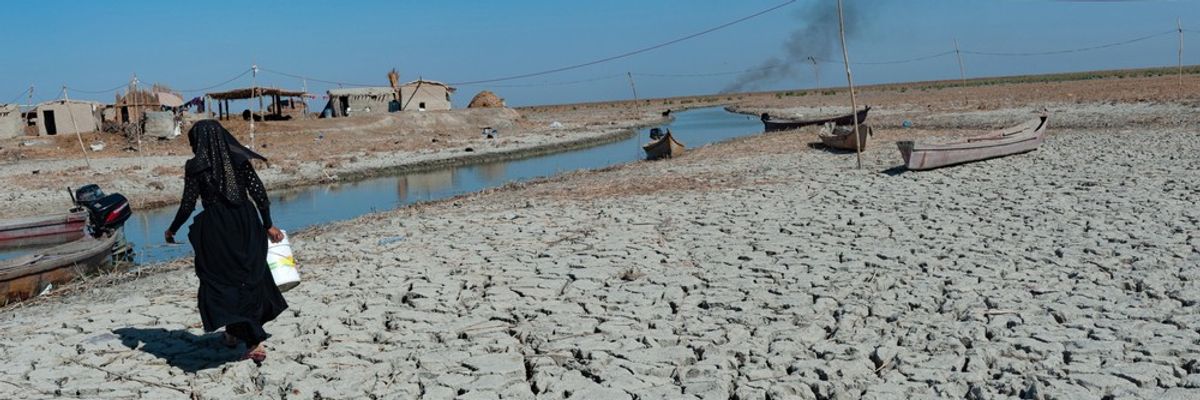Russia vetoed the first-ever draft of an important resolution on climate security at the United Nations Security Council last week. India too voted against the resolution, with China abstaining.
Climate change will cause greater extreme heat waves, stronger hurricanes, enhance drought and floods, and trigger major migrations. This will likely destabilize societies and states and could sharpen existing rivalries over water and other natural resources. Climate security advocates therefore argue that such impacts have security consequences that need addressing by the UNSC.
The draft resolution asked for the inclusion of climate impacts on peacekeeping and conflict resolution activities of the UN. It also asked the Secretary-General to include climate security impacts in his regular reporting to the Council and submit a report within two years “on the security implications of the adverse effects of climate change.”
These apparently innocuous contents of the draft were not the specific focus of its opponents. Rather their objections were more fundamental. Russia, China, and India questioned links between climate change and conflict, asserted that the UNSC was not a representative enough body to consider the matter. They were particularly worried that the UNSC’s coercive powers could be brought to bear on other states, using climate as an excuse for military interventions. However, 12 of the 15 Council members voted for the resolution, including key sponsor Niger. In all, 113 UN member states indicated their support for the resolution, including many developing countries, while 80 were opposed.
The divide on climate security in the UN system is not a simple North-South one. Several small island states, existentially threatened by rising sea levels, want robust action on climate security. Important developing states such as Mexico and Bangladesh are also in favor. On the other hand, major middle powers such as India and non-western great powers such as China and Russia remain opposed. China is more amenable to the issue than earlier, but it remains reluctant to join the U.S. and Europe-led coalition.
It’s also crucial to note that the United States is itself deeply divided on the question. The Trump administration opposed any discussion of climate security at the UNSC. Clearly there it is far from a consensus, even within the wealthy states. Rather than taking a moralistic position condemning the draft’s opponents, it would be smarter for the United States and its European partners to first evolve a consensus through dialogue on a minimum set of actions that have wide support domestically, and among the community of nations.
The elements of such a consensus should acknowledge some of the critics’ points — such as the risks presented by the involvement of the UNSC, and too-wide a definition of climate security. The UN General Assembly may be a more appropriate venue for climate security discussions in the current environment. Washington should also understand that the framework of “strategic competition” it has adopted as the primary approach to China and Russia is unhelpful for bridging climate divides. On the other hand, Russia and its friends need to accept that climate has likely impacts on instability and conflict that will need greater attention in the future. Climate change is simply too important a topic to be held hostage to politicking at the United Nations and elsewhere.
















